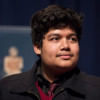US resolution on 1971 genocide must get rid of divisive language

The new resolution in the US Congress introduced by Republican congressman Steve Chabot recognising the 1971 genocide is a good step forward for Bangladesh, and the world in general. It is important to make sure that history is not forgotten and that the international community takes steps to address past cases of grievous human rights abuses and bring the perpetrators to book when possible.
The resolution has received bipartisan support, being co-sponsored by Representatives Ro Khanna, Katie Porter and Tom Malinowski – all of them Democrats. However, it is concerning that some of the language used is deeply divisive, with the Bangladeshi Americans for Political Progress (BAPP) calling it "more about stoking hate across religious lines than justice."
Steve Chabot crafted this resolution with the help of the Hindu American Foundation, an American Hindu advocacy group with roots in the Hindu nationalist organisation Vishwa Hindu Parishad (VHP) America. The VHP has been accused of contributing to violence against Muslims in India, including playing a role in the demolition of the Babri Masjid and the Ayodhya dispute. The VHP is also considered a member of the Sangh Parivar group, a group of Hindu nationalist organisations led by the RSS, which in turn has ties with the BJP. Therefore, it can be argued that the group has its own political interests that do not align with the interests of Bangladesh, or of anyone who wants a nation devoid of religious bigotry.
Because it has been crafted by Hindu nationalists, the resolution's language is rife with attempts at establishing Hindus in Bangladesh as separate from Bengalis. Part of the resolution reads, "Atrocities continued during the ensuing nine-month Bangladesh War of Independence as the Pakistani military scapegoated ethnic Bengalis and Hindus and targeted supporters of the Awami League, Bengali military or police personnel, intellectuals, students, and professionals, while victims included members of both majority (Bengali Muslim) and minority (non-Muslim) communities."

This language is deeply problematic as it separates Hindus from Bengalis, as if Bangladeshi Hindus are not Bengali at all and constitute a separate nation by themselves. This simply is not true. Bangladeshi nationalism, which is rooted in language and culture and has been built up through a shared history of struggle against Pakistan's colonial oppression, supersedes religious boundaries. Bangladesh/Bengali nationalism is inclusive of all religious identities, and separating the Hindu community from it is a devious attempt to portray them as not integrated into the national culture of Bangladesh. Bangladeshi Hindus are part of Bangladesh, but Hindu nationalists like Priya Saha, a loud supporter of this divisive resolution, want to repudiate this.
Moreover, no official consultation with Bangladesh was deemed necessary by those involved in the crafting of this bill. No Bangladeshi organisations were consulted, despite the fact that many are involved in researching the 1971 genocide. Even more surprisingly, the co-chair of the House Caucus on India wrote the resolution without the input of the Bangladesh Caucus or House Foreign Affairs Committee, as if Bangladeshi affairs do not merit a separate consideration and simply falls under India's concerns.
It is true that the resolution has its many merits. It includes a mention of Operation Searchlight. It mentions the 1971 genocide as one of the forgotten genocides of the 20th century, and says that its lack of recognition remains an open wound for millions of people who were directly affected by the atrocities. Its mention of the approximate numbers of people killed and raped in the atrocities match the accounts of the Bangladesh government. It provides an estimation of how many refugees fled to India and what proportion of people were displaced. And finally, it calls on the Government of Pakistan, in the face of overwhelming evidence, to acknowledge its role in the genocide, offer formal apologies to the Government and people of Bangladesh, and prosecute, following international law, any perpetrators who are still living. It does what our governments have failed to do over the past 50 years of independence: Bring the 1971 genocide to the global stage and ensure its place in global memory.
Therefore, the introduction of this bill is a positive development overall. However, the repeated use of the phrase "ethnic Bengalis and Hindus" sticks out like a sore thumb. It seems as if somebody has put it in the resolution on purpose to separate Bengalis from Bangladeshi Hindus. This language is unacceptable and must be changed, and Bangladesh must act and let the sponsors of the resolution know this. The Bangladesh government spends millions of dollars on lobbying the US government on various issues, especially when it comes to ensuring their continued grip on power. It should now use that money, instead, to lobby for a change in the resolution's language and make it such that it is acceptable to us as a nation, and does not attempt to divide us along religious lines.
Anupam Debashis Roy is an editorial assistant at the Daily Star. He can be reached at [email protected]

 For all latest news, follow The Daily Star's Google News channel.
For all latest news, follow The Daily Star's Google News channel. 







Comments